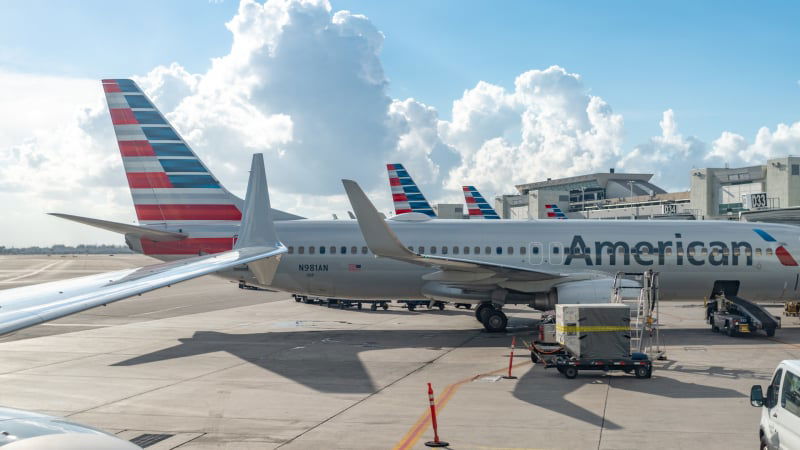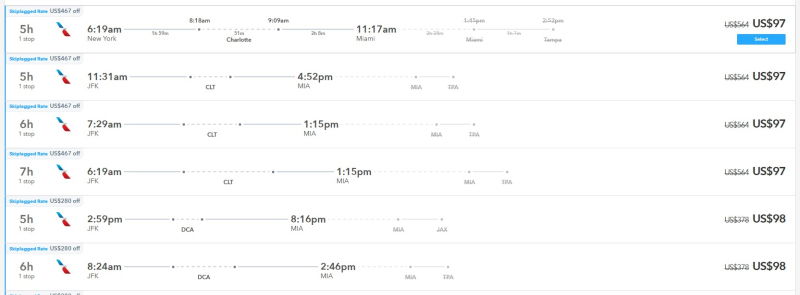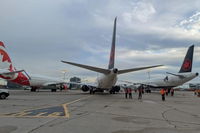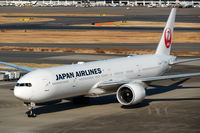American Airlines Sues Skiplagged Over “Hidden City” Tickets

Featured image: Bradley Wint/Gate Checked
American Airlines has sued a popular travel website for offering “hidden city” fares that take advantage of a pricing loophole frowned upon by airlines.
American has filed a suit against Skiplagged, accusing the site of using “unauthorized and deceptive ticketing practices.” They also say that “Skiplagged often charges consumers more than if they had booked a ticket directly with American or through an authorized agent of American.”
They also allege that “Skiplagged knows any ticket it issues is at risk for invalidation, and that American could simply cancel the ticket if detected, so Skiplagged hides its activity. It also tells its customers to hide it from American.” They are also threatening to invalidate all American Airlines tickets booked through Skiplagged.
What is a “Hidden City” fare?
Known as either a “hidden city” or “throwaway” fare, these types of tickets are basically a way of taking advantage pricing loopholes to purchase cheaper one-way flights. Here is a quick example of how it would work.
Airlines sometimes charge less to fly to less in-demand cities versus flying to popular destinations, even if it means taking a connecting flight through a popular city. For instance, let’s say someone wants to fly from New York to Miami, they could then book a cheaper flight from New York to Tampa with a stop in Miami, and come off the aircraft once they get to Miami.
This comes in handy especially for passengers booking one-way fares in business or first class. These fares tend to have a much higher mark up, and sometimes cost almost the same as a round trip ticket. A hidden city ticket could potentially save you hundreds of dollars depending on where you book.
“Skiplagging” works best for domestic flights, as you have a higher chance of being caught traveling internationally. As domestic passengers are not subject to things like immigration and customs, it would not be immediately apparent that said traveler is “skiplagging”. While skiplagging is not illegal, it goes against a growing list of many airlines’ conditions of carriage.
What does Skiplagged offer?

Finding these type of fares isn’t exactly easy as it requires guess-work to figure out which city pairs offer the cheapest options. Skiplagged is a travel search engine that does the hard work, finding the cheapest combinations, showing you a breakdown of the whole flight as well as the “throwaway” portion of the ticket.
In the screenshot above, the first flight departs New York and stops in Charlotte before connecting onto Miami and then onto Tampa. Even though the search was for New York to Miami, the ticket is booked officially as a flight from New York to Tampa with connections in Charlotte and Miami. From there, the skiplagger would get off the aircraft in Miami.
Why are “Hidden City” fares a problem?
While not illegal, airlines stand to lose hundreds of thousands of dollars, potentially millions if abused extensively. One could argue that airlines should work on a better pricing model, but at the end of the day, airlines are in the business of making profits and are not obligated to maintaining the lowest fares.
As part of American Airlines’ conditions of carriage, they specifically address a number of prohibited booked practices including hidden city tickets. The clause reads as follows:
Purchasing a ticket without intending to fly all flights to gain lower fares (hidden city ticketing)
They go on to to state that passengers found doing this can face the following consequences:
If we find evidence that you or your agent are using a prohibited practice, we reserve the right to:
- Cancel any unused part of the ticket
- Refuse to let the passenger fly and check bags
- Not refund an otherwise refundable ticket
- Charge you for what the ticket would have cost if you hadn’t booked it fraudulently
- Require you refund to us any compensation we provided like bag delivery costs, and reimbursement for clothes or toiletries because of late or lost bags
Skiplagged’s website makes it very clear that while using a hidden city ticket is not against the law, it could have potential ramifications with airlines including having your mileage account(s) terminated. They even suggest ways to make your skiplagging experience as smooth as possible including traveling with a back pack only and not using your frequent flyer account number with the ticket.
However they do not alert users of the more serious consequences they could face including being forced to pay for the entire ticket for their intended journey, and potentially facing travel bans with that particular airline.
That was the case for one 17-year-old boy flying from Gainesville to Charlotte. The boy’s father booked him a ticket from Gainsville to New York with a stop in Charlotte through Skiplagged, where the teen would then get off in Charlotte and “throw” away the New York segment.
American Airlines picked up on the teen’s intentions after the gate agent saw that he was flying with a North Carolina driver’s license. After the investigation was completed, the teen was banned from flying with American for three years.
Will this be the case to hold up in court?
This is not the first time that Skiplagged has been sued. In 2014, United Airlines and travel agency Orbitz filed a suit against the booking site, but had their case thrown out due to jurisdiction reasons. Orbitz and Skiplagged eventually reached a private settlement while United did not appear to pursue the matter beyond that.
In 2021, Southwest Airlines also filed suit, but eventually reached a private settlement after much back and forth in the courts. American seems fully intent on addressing the issue, but it is yet to be seen if they will also encounter any major legal roadblocks which may force them to settle outside of the courts.
[Featured Photo: Bradley Wint/Gate Checked]



